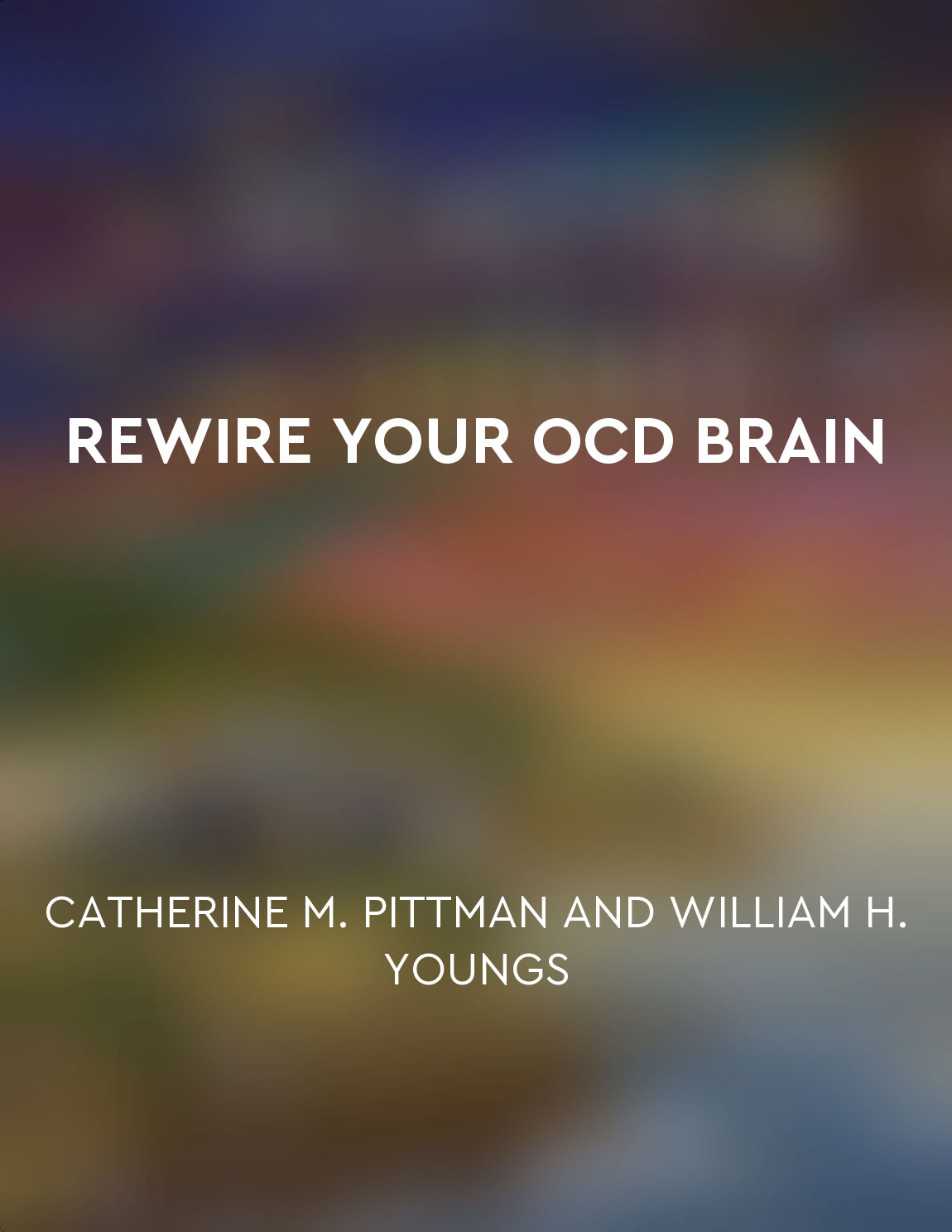Audio available in app
Mental illnesses can be treated through neuroplasticity from "summary" of The Brain That Changes Itself by Norman Doidge
Neuroplasticity, the brain's ability to reorganize itself by forming new neural connections, offers hope for those struggling with mental illnesses. Through targeted interventions, individuals can harness the power of neuroplasticity to alleviate symptoms and improve their overall well-being. One example of neuroplasticity's potential in treating mental illnesses is seen in the case of obsessive-compulsive disorder (OCD). Traditional treatments often involve medications or therapy, but these approaches may not always be effective for all individuals. By understanding the brain's ability to change, researchers have developed novel therapies that specifically target the neural circuits involved in OCD. In the field of psychiatry, neuroplasticity has led to the development of cognitive-behavioral therapy (CBT) as a primary treatment for various mental health conditions. This form of therapy aims to rewire maladaptive thought patterns and behaviors by promoting new, healthier neural connections. As individuals engage in CBT, their brains gradually adapt, leading to lasting changes in how they perceive and respond to the world around them. Moreover, neuroplasticity has also revolutionized the treatment of depression. By stimulating specific brain regions through techniques such as transcranial magnetic stimulation (TMS) or electroconvulsive therapy (ECT), individuals with treatment-resistant depression can experience significant improvements in their symptoms. These interventions capitalize on the brain's inherent plasticity to reset dysfunctional circuits and restore mental health.- The concept of treating mental illnesses through neuroplasticity underscores the brain's remarkable capacity for change and adaptation. By leveraging this innate ability, individuals can overcome the challenges posed by various psychological disorders and achieve greater psychological resilience and well-being. Through targeted interventions and therapeutic approaches that capitalize on neuroplasticity, individuals can embark on a journey towards healing and transformation.
Similar Posts
Changing your thoughts can change your biology
The idea that changing your thoughts can change your biology may seem far-fetched to some, but scientific research and evidence...

Empathy is the ability to understand and share another person's feelings
Empathy is the ability to understand and share another person's feelings. It is the capacity to feel with the other person, to ...

Practice compassion and kindness
In our fast-paced world, it can be easy to get caught up in our own desires and concerns, forgetting about the needs of others....
Seek professional help when needed
When you're dealing with a serious mental health issue, like anxiety or depression, sometimes you need more help than self-help...

Set realistic goals for treatment and recovery
Setting realistic goals for treatment and recovery is crucial when dealing with OCD. It is important to remember that recovery ...
We are better at detecting patterns
The human brain has a remarkable ability to detect patterns. This skill is deeply ingrained in our cognitive processes and has ...
Embracing a brainhealthy lifestyle can lead to a happier life
Adopting a brain-healthy lifestyle has the power to transform your life in ways you never thought possible. By making simple ch...
Positive selftalk can reshape neural connections for success
Positive self-talk has the power to reshape the neural connections in your brain. When you engage in positive self-talk, you ar...
Release negative energy through forgiveness
Forgiveness is a powerful tool for releasing negative energy that is stored in the body. When we hold onto grudges and resentme...

The connection between physical and mental health
The mind and body are not separate entities; they are intricately connected in ways we are only beginning to understand. Our me...

